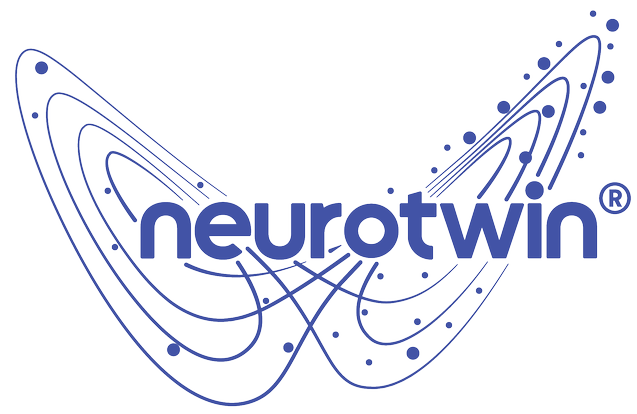Neurotwin

Integrating physics and physiology to develop personalised brain models for effective non-invasive stimulation, aiming to develop better therapy for epilepsy and Alzheimer's disease.
Details
- Period: 2021-01-01 – 2024-12-31
- Budget: 51,362,222 SEK
- Funder: EU – Horizon Europe
- Type of funding: Projektbidrag
Digital twins to help treat neuropsychiatric disorders
Recent findings suggest that non-invasive brain stimulation may be a valuable option to treat conditions epilepsy or Alzheimer's disease. But a better understanding of mechanisms and patient-specific factors is needed.
To address this, Neurotwin will use personalised hybrid brain models that unite the physics of electromagnetism with physiology. These models are often referred to as neurotwins and can play a fundamental role in understanding and optimising the effects of brain stimulation at the individual level. The Neurotwin project aims to deliver novel solutions through model-driven, personalised therapy. They are constructing a computational framework, weaved and validated across scales and levels of detail, to represent the mechanisms of how electric fields interact with brain networks to assimilate neuroimaging data.
The process will allow them to characterise the dynamic landscape of individual brains and define strategies for stimulation to restore healthy dynamics. With the help of existing databases of healthy individuals and individuals with Alzheimer’s disease, Neurotwin will develop the first human and rodent neurotwins that predict the effects of stimulation on brain dynamics. Then the researchers will collect detailed and multimodal measurements in mice and humans to improve the predictive power of local and whole-brain models under the effect of electrical stimulation. These findings will then be translated into a technology pipeline for the design of new, personalised neuromodulation protocols that will be tested in a cohort of patients with Alzheimer’s disease and healthy control subjects in randomised, double-blind studies.
The research takes place at the intersection of nonlinear dynamics, network theory, biophysics, engineering, neuroscience, clinical research, and ethics. Neurotwin will deliver model-driven breakthroughs in basic and clinical neuroscience, with patients ultimately benefiting from safe, individualised therapies.
Collaborating organisations
- Neuroelectrics Barcelona SL, Spain
- Universitat Pompeu Fabra (UPF), Spain
- Universidad Pablo Olavide (UPO), Spain
- Leibniz-Institut für Arbeitsforschung an der TU Dortmund (IFADO), Germany
- Uppsala Universitet (UU), Sweden
- Massachussets General Hospital (MGH), USA
- Fondazione Santa Lucia (FSL), Italy
People in the project
Kathinka Evers
Research with a focus on philosophy of mind, neurophilosophy, neuroethics, bioethics and artificial intelligence. Professor ad honoram at Universidad Central de Chile.

Manuel Guerrero
Research on the ethical and social implications of interdisciplinary brain research and development of neurotechnologies, dual use, human rights and responsible research and innovation.

